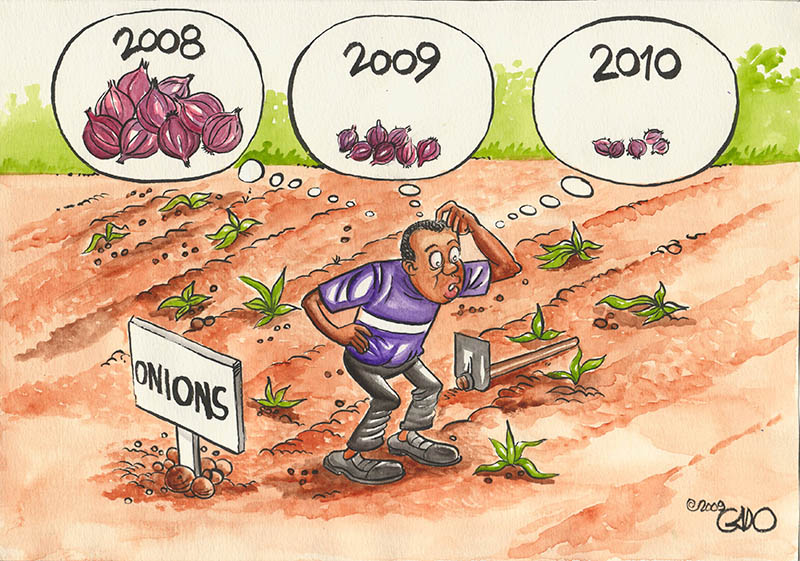
Virginia Echavarria, from Buenos Aires Argentina, studied the MSc Natural Resources, Sustainable Environmental Management course at the Natural Resources Institute in 2009. She is now project manager for the Ugandan Carbon Bureau in Kampala for a project dealing with improved cooking stoves. Here she tells her story in her own words.
What did you like about/what did you take from the course?
I enjoyed listening to the tutors, because most of them were passionate about the specific subjects taught; they would present real life projects from all over the world, from intensive and conservation agriculture in Sub-Saharan Africa, to defeating malaria and tsetse flies in Southern Africa. It was not only academic, but also a handholding journey of real life experiences.
Who was your supervisor?
Dr P J A Burt, Biometeorologist, Agriculture, Health and Environment Group
What were you doing before taking this course? And what made you want to take this course?
I originally started with World Trade and Development and through the recommendation of my tutor back then, Terry Cannon, I decided to change courses. It was under his advice and encouragement that I managed to win an internship placement for one year in eastern Democratic Republic of the Congo (DRC), working in the northern sector of Virunga National Park for the NGO, Africa Conservation Fund. This experience channelled my professional future into what today is my daily passion: renewable energy and energy efficiency, linked to fair carbon finance and sustainable development.
How were you able to fund the course?
I was lucky to fund it myself. I would work every weekend plus an extra day of the week selling properties for new housing developments in central London. They hourly rate was good so it really helped me to cover all living costs, including the University fees. I was fortunate with commissions from the properties sold and during the time of my studies, the market was very active.
What challenges did you come across from studying in a different country to your own?
I had been living away from home for quite some time when I started the MSc, so I did not feel it as a challenge. It was difficult during my earlier years in London when doing the undergraduate course; I missed my family and friends a lot.
What was it like settling in to the course and to life in Britain?
It has been an amazing experience. Britain has got outstanding cultural diversity and living in London has given me the opportunity to mentally travel the world by relating with work colleagues and university peers from every corner of the planet. It has fuelled my curiosity to explore, enhanced my lateral thinking and helped me to become a more tolerant person.
What have you been doing since taking the course? And how has the course helped you get where you are today?
I have been living in Africa since 2007, working for both NGOs and the private sector in DRC, Ivory Coast and Uganda. The course has been crucial in shaping my professional profile, and as a result of my latest and current position as a Project Manager for the Uganda Carbon Bureau, I have decided to continue with my education. I have been awarded a scholarship to do a distance learning MBA at Warwick Business School. I would never have achieved what I have today, if it was not for the education received throughout my life.
What are you working on now? What is your position now?
I am now based in Kampala, working as a Project Manager for Uganda Carbon Bureau. We have got the first multi-country Clean Development Mechanism and Gold Standard registered Programme of Activities for improved cooking stoves. We operate in Uganda, Kenya, Rwanda, Burundi, South Africa and Lesotho.
Could you tell us a bit about your family?
I was born and raised in Buenos Aires, Argentina. I have got a younger brother and an older sister, and my parents live in Buenos Aires.
I am a single mum, mother of a beautiful boy named Serafin who is now 4 years old. His father is from Bukavu, DRC. Serafin lived his first year in Rwanda, and we then moved to Ivory Coast. We have been living in Kampala, Uganda for the last three years.
Do you have any advice for prospective students of NRI?
I would say to them the same as I would say to those amazing women I meet through my working environment in Uganda: the best thing you can give your child is education. I can be laid off work, the company can collapse, a natural disaster can happen. But no one can take away from me the education gained, and that is the key to opening doors in the future.
Do you have a message for NRI?
I would like to thank Claire Coote and Peter Burt for being an inspiration to me. They have supported, believed and encouraged me to continue despite difficulties in my life at the time, and I would not be where I am today if it wasn't for them.

